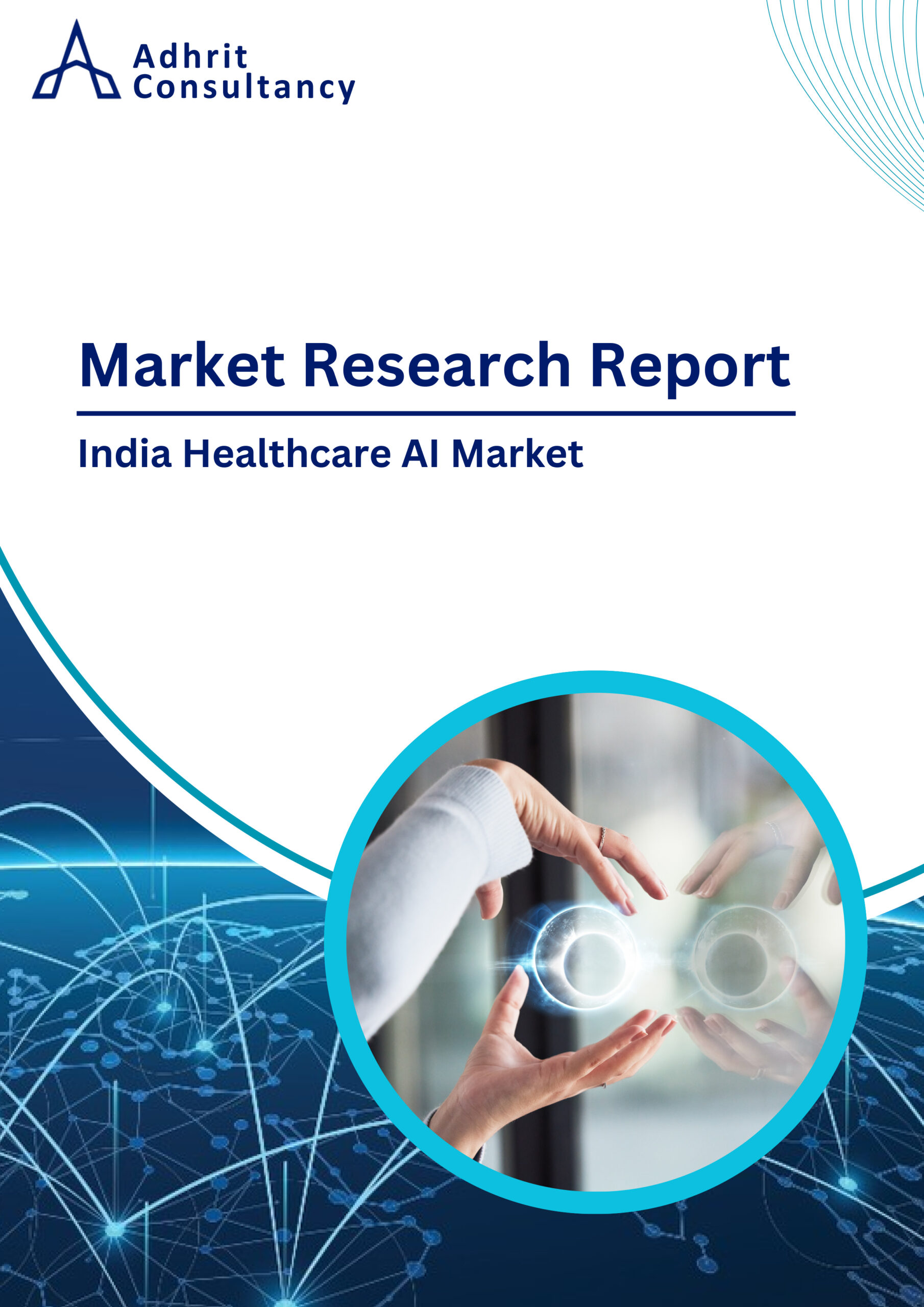- Need Free Consultation?
India Healthcare AI Market

India's AI market is projected to reach $106.21 billion by 2027
$3000$1500
India’s healthcare AI market is rapidly emerging as a global leader, driven by a resilient economy and a robust healthcare infrastructure that fosters innovation despite global challenges. Government-backed initiatives like the National Health Digital Mission and significant investments in health tech startups are fueling growth, with AI solutions transforming diagnostics, personalized medicine, and hospital operations across the country. India’s vast talent pool in data science and AI, combined with cost-effective healthcare solutions and modernized infrastructure, makes it a hub for healthcare innovation. AI-powered diagnostics are enhancing early disease detection for conditions like cancer and diabetes, improving treatment outcomes. The thriving R&D ecosystem and partnerships between startups, healthcare institutions, and global corporations are further accelerating this trend. India’s supportive regulatory framework, with a focus on patient data protection and intellectual property, is positioning the country as an attractive destination for multinational companies to invest in AI-driven healthcare solutions. As healthcare infrastructure and digital connectivity improve, AI’s role in enhancing patient outcomes and operational efficiency will only continue to grow, solidifying India’s place in the global healthcare value chain.
ID:-2024002 Geography: India Author: Pinal Patel
ID:-2024002
Geography: India
Author: Pinal Patel
AI in India healthcare industry market is growing at the rate of 40 % from 2021 to 2030.
Role of AI in Indian Healthcare
Artificial Intelligence (AI) is playing a transformative role in India’s healthcare industry, driving innovation and improving patient outcomes. From automating medical diagnostics to enhancing doctor productivity and delivering healthcare to remote areas, AI applications are addressing some of the most critical challenges in Indian healthcare. AI-powered tools are enabling predictive diagnostics, personalized treatments, and real-time monitoring of patients through wearable devices, thus revolutionizing how healthcare is delivered across the country.
AI is not only helping healthcare professionals to provide more accurate diagnoses, but it is also enhancing operational efficiencies in hospitals and clinics, ultimately lowering healthcare costs. Furthermore, AI is enabling access to high-quality healthcare for underserved populations in rural areas, helping bridge the urban-rural healthcare gap
Growth Drivers of AI in Indian Healthcare
Several factors are propelling the rapid growth of AI in India’s healthcare industry, including:
- Expanding Datasets: The growing availability of patient health-related digital information is a key factor driving AI adoption. This data allows for improved predictive diagnostics and better treatment planning.
- Rising Demand for Personalized Treatment: AI is aiding in the development of personalized healthcare solutions, helping healthcare professionals tailor treatments to individual patient needs.
- Cost Reduction: AI technologies are reducing healthcare costs by automating various tasks, improving diagnosis accuracy, and enhancing hospital management systems.
- Chronic Disease Management: The increasing prevalence of chronic diseases and a growing elderly population are fueling the need for AI-driven healthcare solutions that offer early diagnosis and proactive care management.
- Government Initiatives: The Indian government’s initiatives, such as the “Make AI for India” program and the establishment of AI centers of excellence, are providing the necessary infrastructure to support AI’s growth in healthcare.
Types of AI Services in Healthcare
1. AI in Diagnostics
- Automated Medical Imaging: AI algorithms are being used to analyze medical images, such as X-rays, MRIs, and CT scans, for early and accurate detection of diseases like cancer and cardiovascular conditions.
- Predictive Analytics: AI tools are used to predict the onset of diseases based on patient medical records and lifestyle data, enabling early intervention.
2. AI in Treatment and Patient Care
- Wearable Health Devices: AI-integrated wearable devices monitor patient vitals in real-time, providing actionable data to doctors and improving patient outcomes.
- Virtual Health Assistants: AI-powered chatbots and virtual assistants are used for scheduling appointments, providing medical advice, and offering continuous health support to patients.
3. AI in Hospital Management
- Automation of Administrative Tasks: AI streamlines hospital management tasks such as patient scheduling, billing, and data management, improving efficiency and reducing manual errors.
- Supply Chain Optimization: AI algorithms are being used to optimize hospital supply chains, ensuring timely delivery of essential medical supplies and reducing operational costs.
Key players
- Nuance India Private Limited
- IBM India Pvt Ltd
- Microsoft
- NVIDIA Corporation
- Intel Corporation

